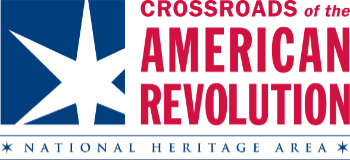Biography People
Shepard Kollock Full Biography
I was born in September 1750, in Lewiston, Delaware. My father died in 1757 and I lived with my mother until I was sixteen. Then my uncle, William Goddard, invited me to join him in Philadelphia, Pennsylvania in 1767 where he was a leading printer and published the Pennsylvania Chronicle and Universal Advertiser and knew Benjamin Franklin very well. While with my uncle I worked with Isaac Collins, a Quaker man who later published the first newspaper in New Jersey, first at Burlington and then at Trenton.
After three years, due to some health problems, I left my uncle and went to St. Croix in the West Indies to recuperate and continue printing. When the Revolution broke out I wanted to be involved and asked Isaac Collins for a letter recommending me for an officer’s commission in one of the Continental Army regiments being raised in New Jersey in late 1775. Although I was not selected, I entered the Continental service in the summer of 1776 as a lieutenant in Captain Thomas’s Company of Colonel Richard Humpton’s Pennsylvania regiment. When our army was crossing New Jersey after the terrible defeats in New York, General Washington ordered Colonel Humpton to go to Trenton ahead of the army and ensure that there were suitable boats at the two Trenton ferries to transport the army over the river to Pennsylvania with all its baggage. We were also to collect every boat we could find up and down the river from Trenton and secure them on the Pennsylvania side so the British could not follow our army. I served with Colonel Humpton until after the Battle of Trenton. Then, on January 1, 1777, I joined Captain Clark’s company of Colonel John Lamb’s artillery regiment serving under General Henry Knox. I continued to do duty in Clark’s company until sometime in the summer of the same year, when I was ordered to join the army of General Gates in the company of Captain Bliss. While serving with Captain Bliss, I almost was in an action that would have put me in deadly conflict with my Loyalist brother, Captain Simon Kollock, serving with the British. In June 1777, I married Susan Arnett of Elizabethtown and our first son, Henry, was born in 1778. I got caught up in the jealousies and frustrations over the appointment and promotion of officers in the Continental Army. I asked to be allowed to resign in May 1778. This request was made at an opportune time since Washington had just recently asked Congress to authorize a “camp press” he could use to inform citizens about the war. He wanted a newspaper that would tell the Patriot side of things to counter the Loyalist newspapers available to a wide audience.
General Knox encouraged me to get back into printing and publish the newspaper Washington wanted to create. I was granted a furlough by Knox and at the close of the campaign of 1778, I resigned my commission and received an honorable discharge from him on January 3, 1779, at Camp Middlebrook. In February 1779, I began publishing the New Jersey Journal, at a press I first set up in Day’s Tavern, Chatham, New Jersey. In an April 1780 newspaper ad I said I was located near the liberty pole in Chatham. The liberty pole stood in front of Timothy Day’s tavern. This was New Jersey’s second newspaper, my friend Isaac Collins having established the New Jersey Gazette in 1777. My print shop in Chatham also published books and pamphlets and I expanded my business to include selling many items from tea to slaves. I would have preferred to work at Elizabethtown, but it was too exposed to attack from the British in New York so I thought Chatham was safer. My articles stirred up my readers, especially the British who called me “the rebel printer” and tried to put me out of work. When the redcoats attacked Springfield, in June 1780, I moved my press, fearing its destruction. However, I was back printing a week later.
I printed the New Jersey Journal in Chatham until December 3, 1783. The war was over and the British out of New York City so I moved there and set up a printing shop to publish the New York Gazetteer and the Country Journal, and had a second press at New Brunswick, New Jersey, to keep the Journal in print. After the New York shop closed, I moved my family and printing press to Elizabethtown in 1785, where we continued to print our newspaper as the New Jersey Journal and Political Intelligencer until 1818. I also served for a time as a judge in the Court of Common Pleas in Essex County. Though retired from printing, I served Essex County as its postmaster, from 1820 to 1829. In 1839, I died at the ripe old age of 88 but the Journal outlived me by another 153 years, ending its run in 1992.
FURTHER SOURCES
Anderson, John R., Shepard Kollock, Editor for Freedom: The Story of the New Jersey Journal in Chatham, 1779-1783. Chatham, NJ: Chatham Historical Society, c1975.
Pitney, Henry Cooper, A History of Morris County, New Jersey, Embracing upwards of Two Centuries 1710-1913. Vol 1. New York: Lewis Historical Publishing Co., 1914. Pages 289-291
Susan Kollock Pension File W3143, NARA
Genealogies of New Jersey Families, from the Genealogy Magazine of New Jersey, Volume 1, Families A-Z, by Joseph R. Klett, Genealogy Publishing Company, Inc., 2000.
